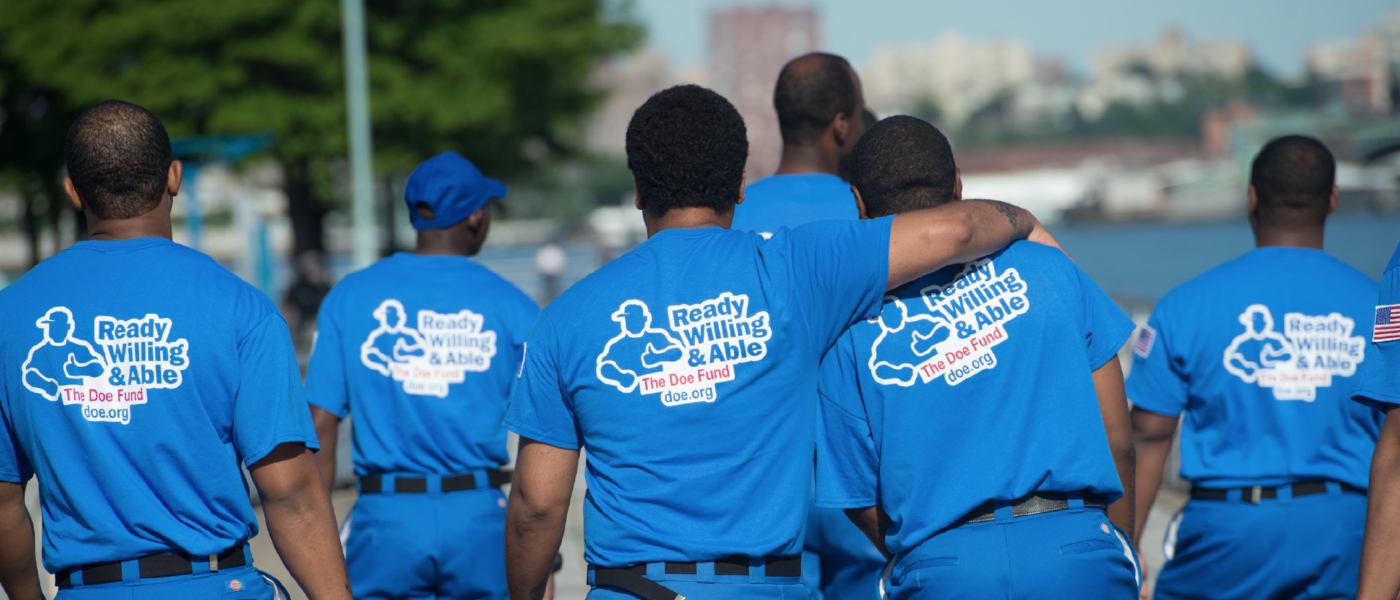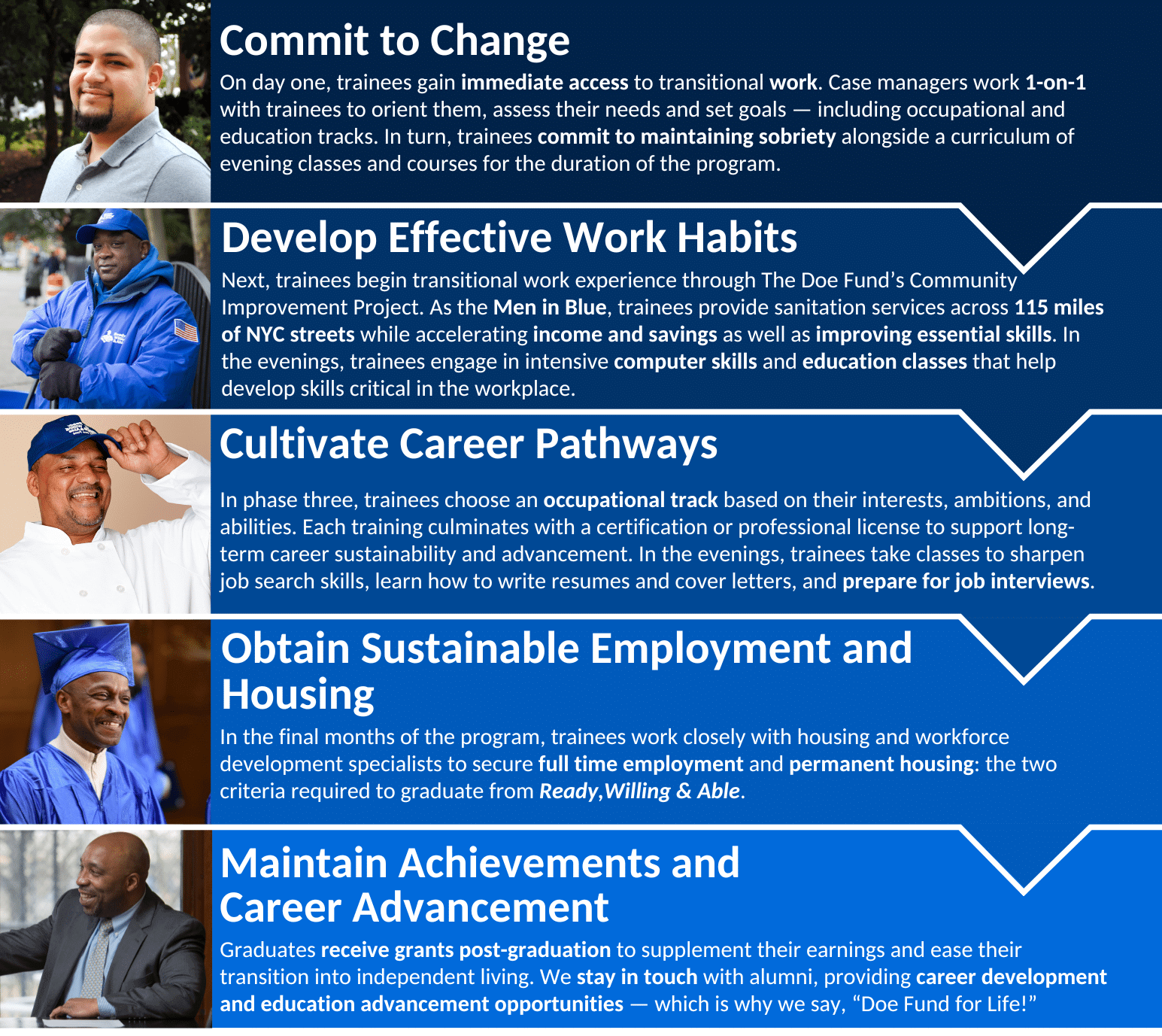At the core of this 12-month residential program is paid work—complemented by holistic social services, career and workforce development training, continuing education, and sobriety support. It is the first program to combine paid work with comprehensive supportive services to help disenfranchised men ascend the economic ladder. Ready, Willing & Able represents a core component of the spectrum of care The Doe Fund offers to New Yorkers in need.
The Men in Blue, as participants in the program are known for their bright uniforms, have faced extraordinary hardships, but are determined to improve their lives. Since the program began in 1990, thousands have graduated from Ready, Willing & Able with their sobriety, a full-time job, and a permanent home. A pioneer of the Work Works model, Ready, Willing & Able has been replicated or scaled in six communities across the United States.
The year-long journey through Ready, Willing & Able takes place over four deliberate, structured phases: Commit to Change, Reenter the Community, Build a Career, and Secure Independence.
Learn more about the Men in Blue’s street cleaning routes here.





